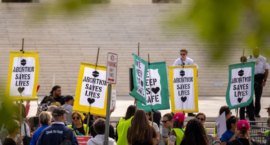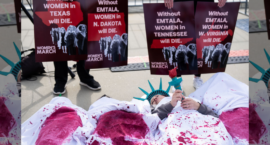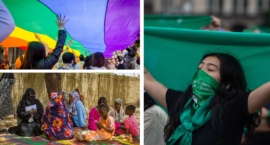Tuesday, April 9, 2024, will go down in history. It is the day that far-right extremists got what they wanted in Arizona: a near-total ban on abortion. It is the day the Arizona Supreme Court turned the clock back 160 years—to a time before women could vote and before Arizona was even a state. It is a day that we will look back on with shame and horror. Like so many Arizona moms, my first thought was of my daughter, who was born last July in a post-Roe America.
While we cannot snap our fingers and change the dynamic at the U.S. or Arizona Supreme Court, we can make our voices heard at the ballot box. Come November, Arizona women are going to come out in full force to vote for our right to control our own bodies.












